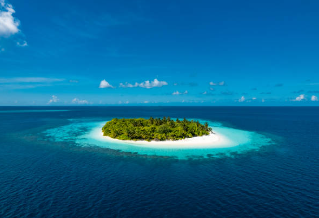Island have always held a special allure for travellers researchers and dreamers. Whether it’s the idea of isolation untouched nature or unique cultures islands evoke a sense of adventure. But what makes them so compelling?
Why do millions of people visit islands every year?
And what role do islands play in the broader context of environmental conservation tourism and culture?
Let’s start by addressing a significant misconception—islands are often thought of solely as vacation destinations. While it’s true that places like the Maldives. Hawaii and Bora Bora draw tourists for their stunning beaches and luxurious resorts the islands are much more than that. They are rich ecosystems homes to diverse flora and fauna and often serve as natural laboratories for studying evolution and biodiversity. Islands are also crucial to the livelihoods of millions of people worldwide from fishing communities to burgeoning tourism economies.
In this blog, we’ll dive into the magic of islands using the PSA (Problem Solution Action) framework. Along the way, we’ll explore some case studies that reveal the incredible potential of islands and their importance beyond their postcard-perfect images.
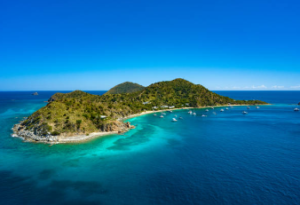
Why Islands Deserve Your Attention
- Natural Biodiversity Hotspots
Islands are biodiversity treasure troves. Despite covering only about 3% of the Earth’s surface islands harbour nearly 20% of the planet’s species. The Galápagos Islands for instance were pivotal in Charles Darwin’s theory of evolution. These islands’ isolated ecosystems allowed unique species to evolve such as the famous Galápagos tortoises and finches.
Another fascinating case is Madagascar often called the eighth continent. More than 90% of Madagascar’s fauna is unique to the planet. The island’s lemurs baobab trees and colourful chameleons are not just natural wonders but also vital components of the global ecological balance.
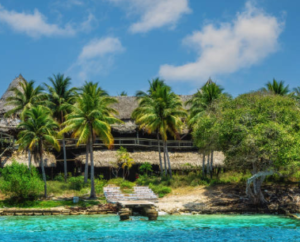
- Economic Importance
Islands contribute significantly to global economies through tourism fishing and trade. Let’s consider the Maldives. Tourism accounts for about 28% of its GDP with over 1.7 million tourists visiting annually (pre-pandemic). This influx not only boosts local businesses but also creates employment opportunities for thousands of people.
Similarly, islands like Iceland have successfully diversified their economies by focusing on sustainable tourism. Iceland’s unique landscapes—volcanoes, geysers and glaciers—draw millions of visitors generating revenue while prioritizing environmental conservation.
- Cultural Richness
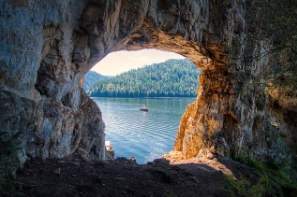
Islands are melting pots of a culture shaped by centuries of migration trade and adaptation. Papua New Guinea for instance is home to over 800 languages and countless tribal customs. These traditions are deeply rooted in the island’s natural environment and offer a window into human resilience and creativity.
Another example is Fiji where a blend of Melanesian Polynesian and Indian influences has created a vibrant cultural tapestry. From the fire-walking ceremonies to kava rituals these traditions are not just tourist attractions but living expressions of the islanders’ identities.
- Climate Change Sentinels
Islands are on the frontline of climate change. Rising sea levels coral bleaching and extreme weather events disproportionately affect island nations. Tuvalu a small island country in the Pacific faces the existential threat of being submerged entirely. However, these challenges have also turned islands into hubs for climate innovation.
For example, Vanuatu has taken significant steps toward becoming a leader in renewable energy. By investing in solar, wind and hydroelectric power the island nation aims to reduce its reliance on imported fossil fuels. Such initiatives provide a blueprint for other countries grappling with similar issues.
What Can You Do to Support Islands?
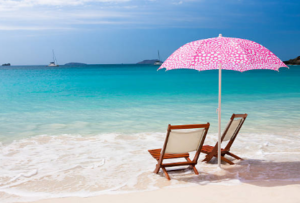
Islands are more than just vacation spots they’re essential to our planet’s health economy and cultural diversity. Here’s how you can contribute positively.
- Choose Sustainable Travel
When visiting an island opt for eco-friendly accommodations and activities. For instance, many resorts in the Maldives now offer programs focused on coral reef restoration and marine conservation. By supporting such initiatives you contribute to preserving the very ecosystems you’re enjoying.
- Learn About Local Cultures
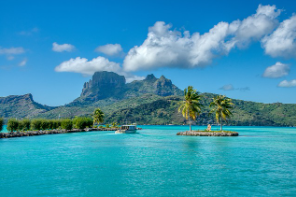
Engage with the local communities and learn about their traditions challenges and stories. Respect their way of life and consider participating in cultural experiences like traditional cooking classes or guided tours led by locals.
- Advocate for Climate Action
Islands are the canaries in the coal mine when it comes to climate change. Advocate for policies that reduce carbon emissions and support renewable energy initiatives. Organizations like the Global Island Partnership (GLISPA) work to promote sustainable development on islands worldwide. Supporting such organizations can amplify your impact.
- Support Conservation Efforts
Contribute to organizations working to protect island ecosystems. Such as the Island Conservation or Coral Restoration Foundation. Even small donations can go a long way in funding projects that preserve biodiversity and combat environmental degradation.
- Spread Awareness
Share the importance of islands with your network. The more people understand their significance the greater the collective effort to protect them. Use your social media platforms to highlight issues like coral bleaching rising sea levels and the cultural richness of islands.
Case Study: Iceland—A Model of Sustainable Island Living
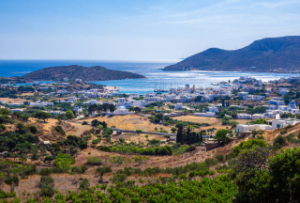
Iceland offers a compelling example of how islands can balance tourism conservation and economic growth. Known as the Land of Fire and Ice Iceland attracts over 2 million tourists annually drawn to its breathtaking landscapes and unique geothermal activities.
How Iceland Leads in Sustainability:
Renewable Energy:
Over 85% of Iceland’s energy comes from renewable sources primarily geothermal and hydroelectric power. This has significantly reduced the island’s carbon footprint and serves as a model for other nations.
Eco-Tourism:
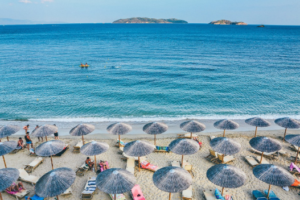
Many tour operators in Iceland focus on minimizing environmental impact. For example, the Blue Lagoon—a famous geothermal spa—operates sustainably by recycling water and utilizing geothermal energy for heating.
Community Involvement:
Local communities actively participate in preserving Iceland’s natural beauty. From glacier-cleaning expeditions to reforestation projects, residents play a crucial role in maintaining their environment.
Legislation:
Strict environmental laws ensure that development projects consider their ecological impact. For instance, off-road driving is prohibited to protect fragile moss and soil ecosystems.
By prioritizing sustainability, Iceland has demonstrated that islands can thrive economically while safeguarding their natural and cultural heritage.
Final Thoughts
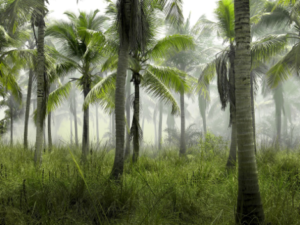
Islands are more than picturesque escapes they are vital to our planet’s biodiversity economy and cultural fabric. Whether it’s the pristine beaches of the Maldives the unique wildlife of Madagascar or the resilient communities of Tuvalu the islands offer lessons and inspiration for us all.
As visitor advocates and global citizens, we have a role to play in supporting islands. By choosing sustainable practices respecting local cultures and advocating for climate action. We have the power to guarantee that these gems will be conserved for generations to come.
So, the next time you dream of an island getaway think beyond the beaches. Explore the ecosystems immerse yourself in the culture and leave a positive impact. Islands are waiting—not just to be discovered but to teach us the value of harmony with nature.
